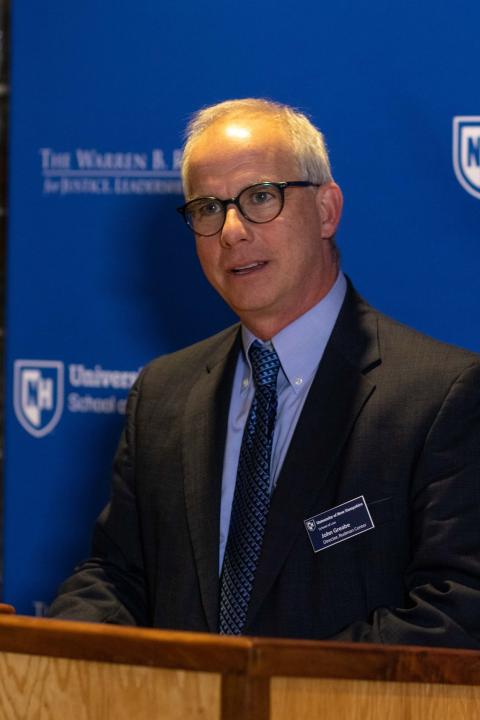Prof. John Greabe Comments on the Pervasive and Problematic Use of the Harmless Error Doctrine

Professor John Greabe
A recent investigation by the NPR, the Ohio Newsroom, and Columbia Journalism Investigations concluded that most claims of prosecutorial misconduct by defendants in Ohio, though found to have merit by appellate judges, were deemed “harmless.” Defendants were left with no relief, and prosecutors rarely faced repercussions.
Read the investigative reports here.
Under the “harmless error doctrine,” prosecutorial misconduct found to be “harmless” does not meet the threshold of warranting a new trial. The doctrine holds that defendants have a constitutional right to a fair trial, not a perfect one.
Among Professor John Greabe’s comments included in the articles:
“The effect of harmless error is to say, ‘there’s been a violation of rights, but we’re (not going to) do anything about it,’” said John Greabe, of the New Hampshire School of Law, a problem that he called “pervasive” in courtrooms nationwide.
Greabe said the doctrine has become so “regularly argued and applied in the appellate system” that the kind of improper conduct at trial not subject to its legal analysis is getting smaller and smaller.
The investigation authors call their findings “a first-ever attempt to pull back the curtain of anonymity shielding Ohio prosecutors from public scrutiny when appeals courts affirm claims of improper conduct.” The report involved dozens of interviews and a review of select case records, revealing “the improper conduct may not be so harmless.”
Professor John Greabe of the UNH Franklin Pierce School reviewed one of the cases, finding the court had fallen “considerably short of being persuasive” on its obligation to exclude any possibility that the jury had been affected by a detective’s false testimony.
Read Professor Greabe’s Columbia Law Review article on the topic here.
